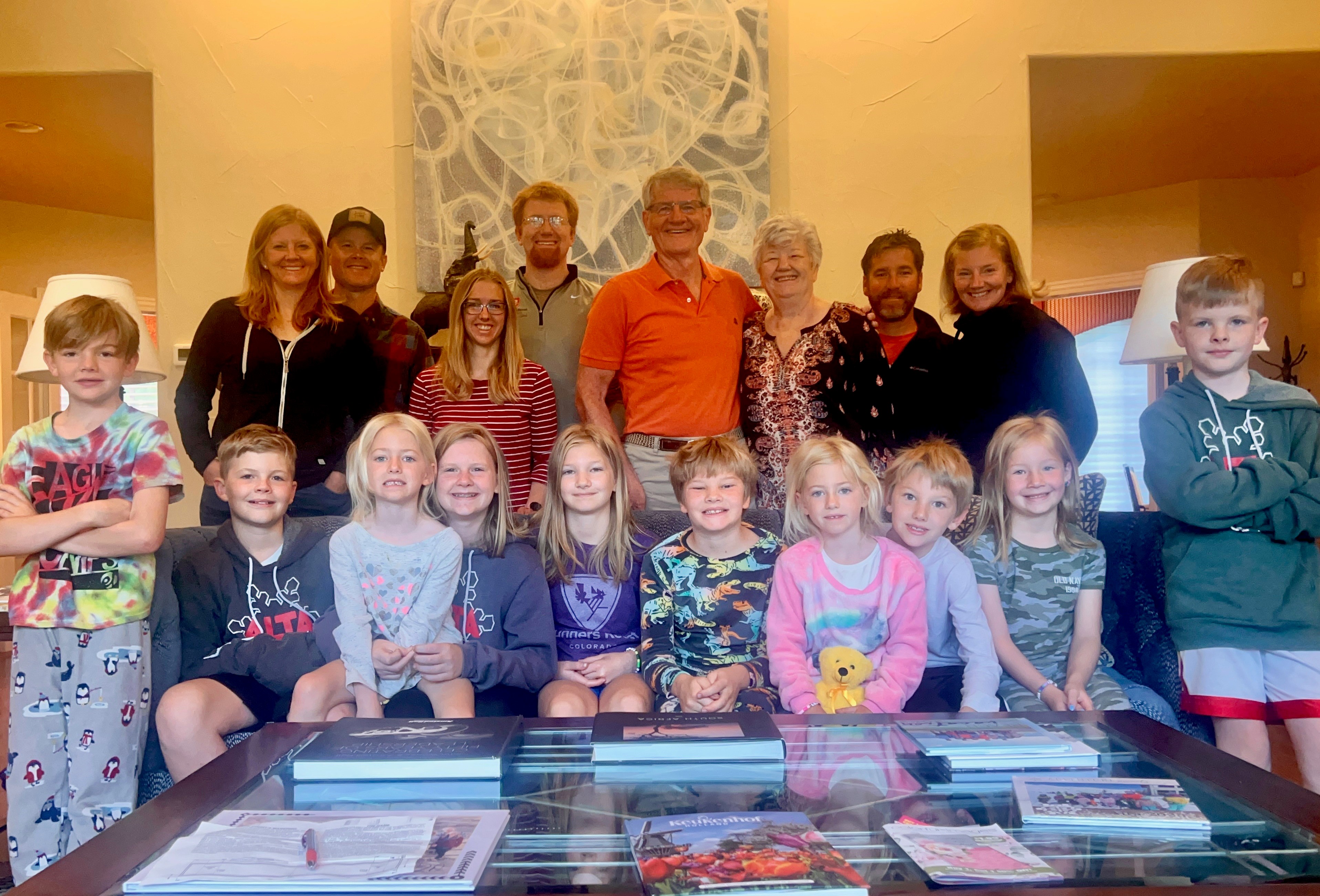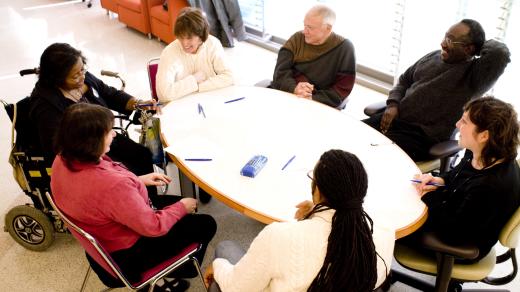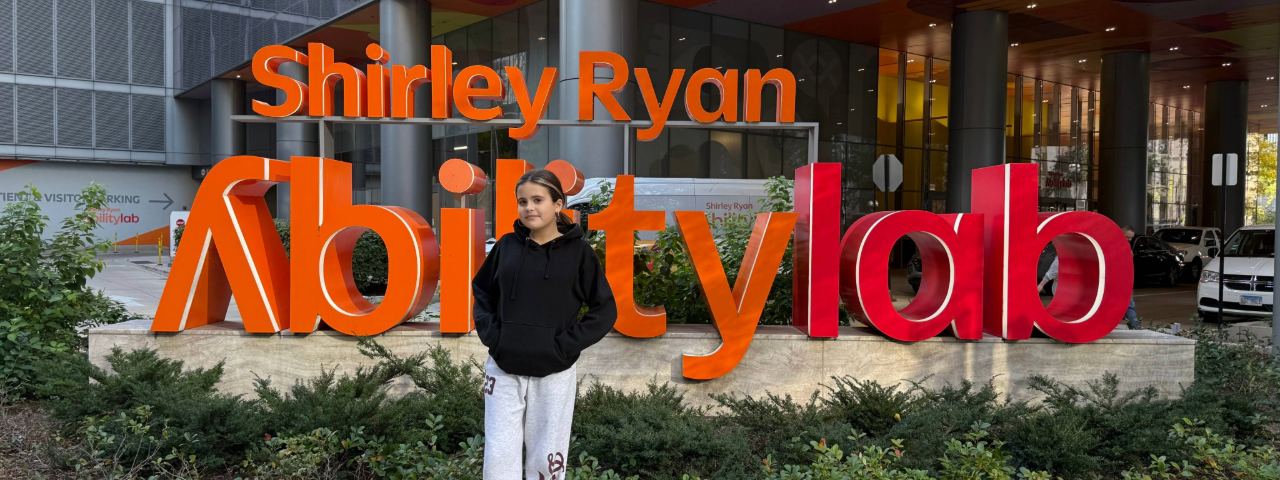Body
When John’s oldest daughter left for college, he wrote her a letter every Sunday. He’d recount the highlights of his week, offer advice and remind her how much he loved her. As his other children left for college, John continued his tradition of writing them weekly. After they all graduated, he switched to email.
For more than 20 years, John never missed a Sunday letter — until the summer of 2020. That June, a few months after he turned 68, John had a stroke. He awoke in a hospital near his home, unable to walk or talk.
John’s stroke had caused aphasia, a disorder that impairs a person’s ability to express and understand language, both written and spoken. Approximately one-third of people who have a stroke develop aphasia. The disorder may not affect all cognitive abilities, however. Someone with aphasia can hear and think, but those abilities may not be obvious due to ineffective communication.
At the time of his stroke, John was an executive in the railroad industry with a career spanning more than 50 years. He and his wife Joan had recently purchased a second home in Denver to be closer to their children and grandchildren. They planned to spend most of their time there after John retired.
Now, their plans abruptly shifted to researching where to take him for inpatient rehabilitation. John’s primary care physician referred them to Shirley Ryan AbilityLab. So, they flew to Chicago for the next critical chapter in his recovery.
Recovery Is a Marathon, Not a Sprint
When John arrived, he couldn’t walk or understand much of anything — even the names of his grandchildren. He said little at first, and when he did talk, he was incomprehensible. His understanding of what others were saying was equally poor.
John’s inpatient care included physical and occupational therapy focused on improving his mobility, endurance, coordination and relearning how to do activities of daily living (dressing, self-care, etc.). Speech therapy included use of computer-assisted technology to enhance his speaking, listening and reading skills.
To help his understanding and speaking, John’s speech therapist created flash cards with words and pictures on them. One card listed the names of his grandchildren, while another noted his hobbies and a third featured a world map to remind him of business travels.
After a month of physical and occupational therapy, John had improved enough physically to transition to outpatient therapy, but his communication skills remained extremely limited.
Practice Makes Perfect
Even though he couldn’t yet read it, John brought The Wall Street Journal into outpatient therapy every day. At first, he just looked at the pictures, but over time, the words began to make sense again.
The progress John made in outpatient therapy qualified him to participate virtually in our Intensive Comprehensive Aphasia Program. This unique treatment program created at Shirley Ryan AbilityLab provided three weeks of intense, focused therapy led by speech-language pathologists with expertise in aphasia treatment.
For six hours a day, five days a week, John engaged in individual, group and computer-based therapies. Each session also included time for interacting with other stroke survivors. Knowing that other people were experiencing similar struggles helped ease John’s anxiety about his progress.
Over time, John began speaking in connected phrases and sentences, with a mix of real words and “made-up” words. As his speech improved, so did his listening comprehension and writing. These skills boosted his confidence. “It was in this intensive process that I made the most significant progress,” said John. “It was the key milestone in my recovery — a gift of life.”
Paying It Forward
Despite its value, the intensive aphasia program isn’t covered by insurance. It bothered Joan that many people who could benefit from this one-of-a-kind therapy couldn’t afford it. Knowing how it changed John’s life, she and John wanted to help however they could. “Without Shirley Ryan AbilityLab, John could be in a nursing home right now because he couldn’t communicate,” Joan said.
In 2022, John and Joan made their first gift to Shirley Ryan AbilityLab to support aphasia community programs. Designed to help participants practice communicating in a supportive environment, programming includes a book club and conversation groups focused on various topics. Their latest donation will support a community choir, volunteer opportunities and several events in celebration of Aphasia Awareness Month in June.
Returning to What Matters Most
Since his time at Shirley Ryan AbilityLab, John has reached many of his goals. He participates in community activities, serves as a greeter at church, reads books, writes correspondence without an editor and even travels solo again.
Of all his achievements, one of the sweetest was resuming the cherished tradition he began so many years ago. A year after his stroke, John delivered a Sunday letter to his children — the first since his stroke.
He’s grateful to everyone who helped him return to what he values most: his faith, family and friends. “I’ve gotten so much from Shirley Ryan AbilityLab,” John said. “I know that helping people like me takes a lot of research and development, new technology and money. We’re blessed to be able to give financially. We’re certain Shirley Ryan AbilityLab will be in our lives forever.”
Body



